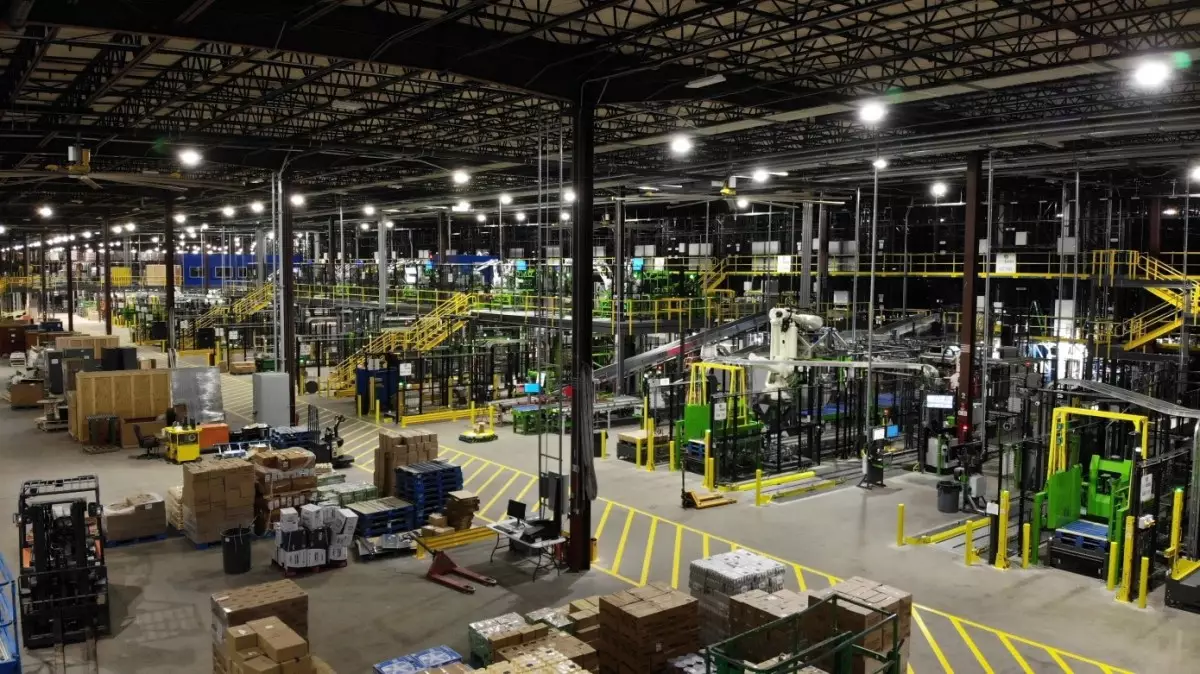In a significant move aimed at revolutionizing its logistics capabilities, Walmart has partnered with the robotics firm Symbotic in a deal that underscores the increasing importance of automation in the retail sector. Announced recently, the arrangement involves Symbotic acquiring control over Walmart’s automation operations for an upfront payment of $200 million, with potential additional payments of up to $350 million based on performance metrics. This partnership is set to deepen the relationship between the two organizations, effectively positioning Symbotic as a pivotal player in Walmart’s quest for efficiency in its supply chain.
The financial architecture of this deal reveals more than just a traditional acquisition; it is structured more like a strategic alliance. In addition to the upfront purchase, Walmart is projected to pay Symbotic a total of $520 million, with $230 million contingent upon the successful conclusion of the deal. This substantial investment signifies Walmart’s commitment to enhancing its operational capabilities through advanced technology. The potential upside of the arrangement is notable, as it allows Symbotic to bolster its status as a leading technology supplier for a major retail player like Walmart, reminiscent of how Amazon cultivated its in-house robotics division after acquiring Kiva Systems in 2012.
Symbotic’s core competencies lie in its robust back-end hardware and software systems for warehouse operations. By taking the helm of Walmart’s automation endeavors, Symbotic is set to streamline pickup and delivery processes across multiple centers. This could lead to increased productivity and efficiency in Walmart’s supply chain, a critical factor as the company navigates an increasingly competitive retail landscape. As e-commerce surges and consumer expectations evolve, the ability to rapidly fulfill orders will be fundamental to maintaining a market edge.
While the deal certainly strengthens the Walmart-Symbotic alliance, it raises questions about the future of Symbotic’s relationships with other clients and potential partners. The partnership may redirect resources and innovations toward Walmart, potentially sidelining non-Walmart customers. The overarching dynamics echo Amazon’s strategic moves in the robotics space, highlighting a trend of major retailers harnessing technology firms to streamline operations and reduce costs.
In addition, the timing of the announcement, coinciding with potential shifts in the regulatory landscape under an upcoming Trump administration, implies that the environment for corporate mergers and acquisitions may become more favorable. This could stimulate further consolidation within the logistics and automation sectors, allowing companies like Symbotic to expand their market share aggressively.
As the deal is expected to be finalized by Q2 2025, the anticipated outcome will be closely monitored by industry analysts and competitors alike. If successful, Walmart’s alliance with Symbotic could be a game-changer in retail automation, setting a high bar for operational excellence in the supply chain. As businesses worldwide grapple with the pressures of modernization and efficiency, this partnership serves as a transformative blueprint for leveraging technology to meet the demands of a new retail era.

